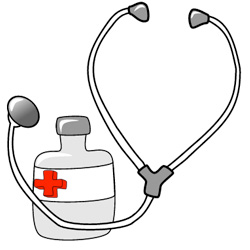Taking Medication and Staying Clean
To just about any addict, the phrase, “Take as prescribed” is considered as a suggestion. Instead of one every four hours, they take 4, every hour. To recovering addicts, this is a joke. To others that think they don’t have a problem, this may be a warning sign.
 Talk to Your Doctor, Sponsor and Friends
Talk to Your Doctor, Sponsor and Friends
An addict’s body doesn’t know the difference between prescribed drugs and street drugs. A drug, is a drug, is a drug. So, when we go to the doctor for anything we explain that we are recovering addicts and ultra-sensitive to any mood or mind-altering drugs. We take a sponsor or another recovering addict with us to our appointment. We talk to our doctor about any alternative treatments that may be available. We find out if we can take a smaller dose.
 The same is true for substance abusers who enter recovery with high expectations of themselves; they develop an all-or-nothing approach to sobriety that sets them up for disappointment and threatens their chances for an enduring recovery.
The same is true for substance abusers who enter recovery with high expectations of themselves; they develop an all-or-nothing approach to sobriety that sets them up for disappointment and threatens their chances for an enduring recovery. The answer, unfortunately, is complicated. Family and loved ones typically advocate seeking help faster than a drug or alcohol addict. While this situation is normal, it is no less frustrating. Professionals call this stage “resistance” and admit that it is one of the most difficult and complicated situations to treat.
The answer, unfortunately, is complicated. Family and loved ones typically advocate seeking help faster than a drug or alcohol addict. While this situation is normal, it is no less frustrating. Professionals call this stage “resistance” and admit that it is one of the most difficult and complicated situations to treat.

